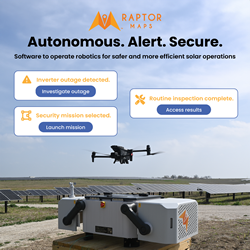Fuel Cells Power Through Storms
Fuel cells helped critical communications running during recent storms.
(Washington, DC – November 16, 2011) Hurricane Irene blasted through the Northeast this past August, and despite her best efforts, could not stop fuel cells from providing clean, reliable power to business and telecom sites during the storm. In late October, Winter Storm Alfred dealt a second blow, and although some are still without power in parts of the region, fuel cells again stepped up to ease the burden. According to Lawrence Berkeley National Laboratory, the annual cost of power interruptions in the U.S. is estimated at $80 billion or more.
Telecommunications companies such as AT&T, MetroPCS, Motorola, Sprint, T-Mobile, and Verizon are turning to fuel cells for backup power to cell tower sites and switching stations because they last longer than batteries, are extremely reliable, and can be sited in rugged terrain and extreme weather climates. During these two major storms, thousands of cell sites were without power for extended periods. Fuel cells were able to keep critical communications running.
� Fuel cell manufacturer ReliOn reports that one customer in the affected area during Hurricane Irene had fifty-six cell towers with fuel cells installed for backup power. Forty-five of those sites experienced grid power outages in excess of six hours during the storm and the forty-five ReliOn fuel cell systems successfully provided power to the communications equipment for a cumulative outage time of 725 hours. Average duration per site was 16 hours, with the maximum single outage duration being 50 hours. ReliOn also gives credit to its bulk hydrogen refueling provider, Air Products, for helping to keep these sites operational. ReliOn fuel cells have also been crucial to provide cellular service for those without power from Winter Storm Alfred.
� One of fuel cell manufacturer IdaTech's customers located in a tropical resort community, reported that the fuel cell system automatically turned on, providing power to the telecom base station and continuous cell phone service for hours.
Fuel cells installed at stores and retail sites can be grid connected or grid independent and can be configured to automatically switch on and provide power when the grid fails.
� The Whole Foods in Glastonbury, Connecticut was able to keep the coolers running at its store during the power outage with its 200-kW UTC Power fuel cell, minimizing the costs of food spoilage. This store was the first grocery store to install a fuel cell and Whole Foods now has four stores operating fuel cells around the country.
� South Windsor High School in South Windsor, Connecticut, is a designated emergency shelter because of its 200-kW UTC Power fuel cell wired for grid independence.
� In the wake of Winter Storm Alfred, Connecticut lawmakers are proposing, among other things, to increase the use of fuel cells in Connecticut to provide more electricity that is "off the grid.''
Although not weather related, during a recent catastrophic power outage in Southern California, one of the only buildings in San Diego that retained power was the Albertsons grocery store, whose UTC Power fuel cell is capable of operating independent of the grid and kept the lights on and food fresh. For everyone else, the blackout lasted for 12 hours.
Fuel cells are enhancing reliability and increasing the efficiency of business operations. These benefits and more are detailed in Fuel Cells 2000 recent report, The Business Case for Fuel Cells 2011: Energizing America's Top Companies. The report profiles 34 corporate customers using fuel cells, including many well-known businesses, such as Whole Foods, Walmart and Coca-Cola. For more information on fuel cells, please visit http://www.fuelcells.org.
Featured Product

